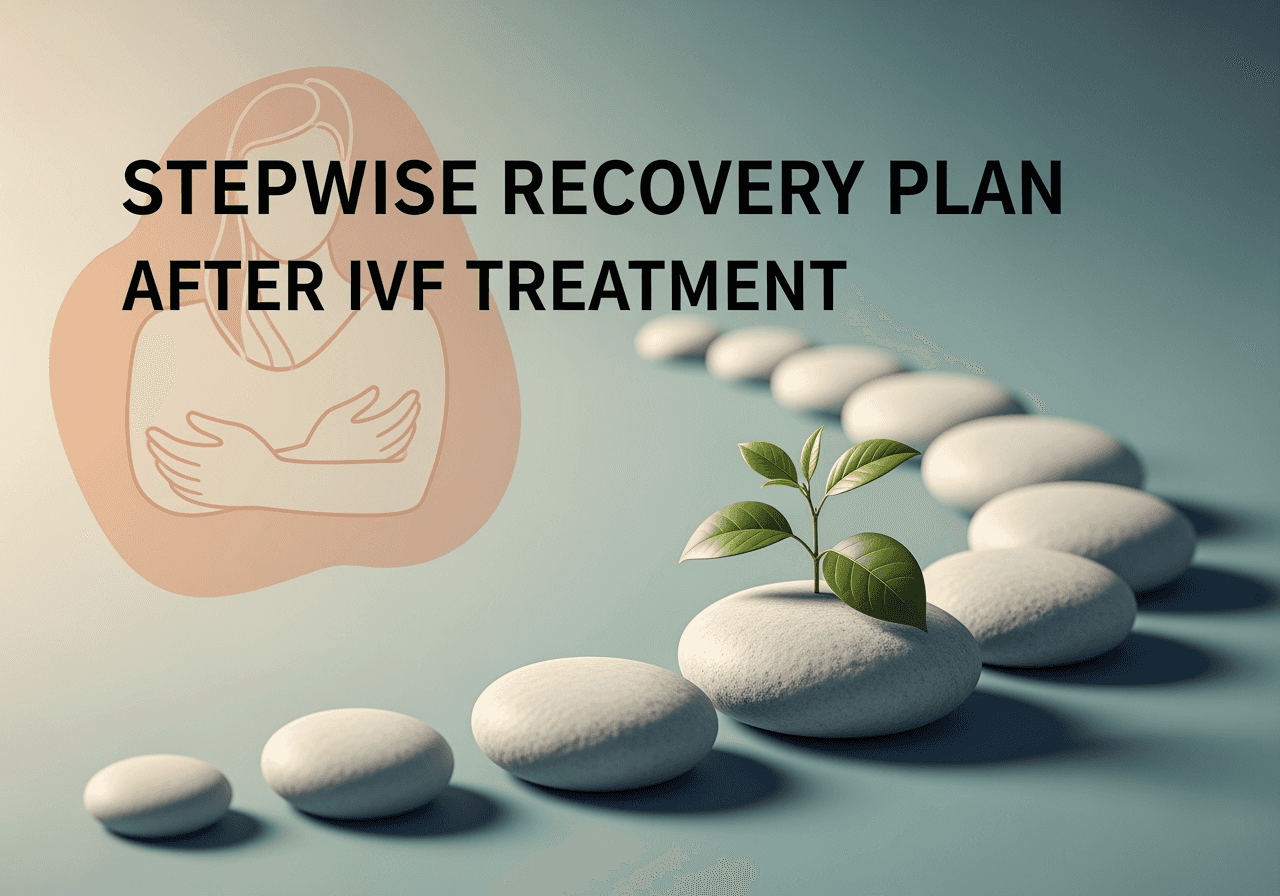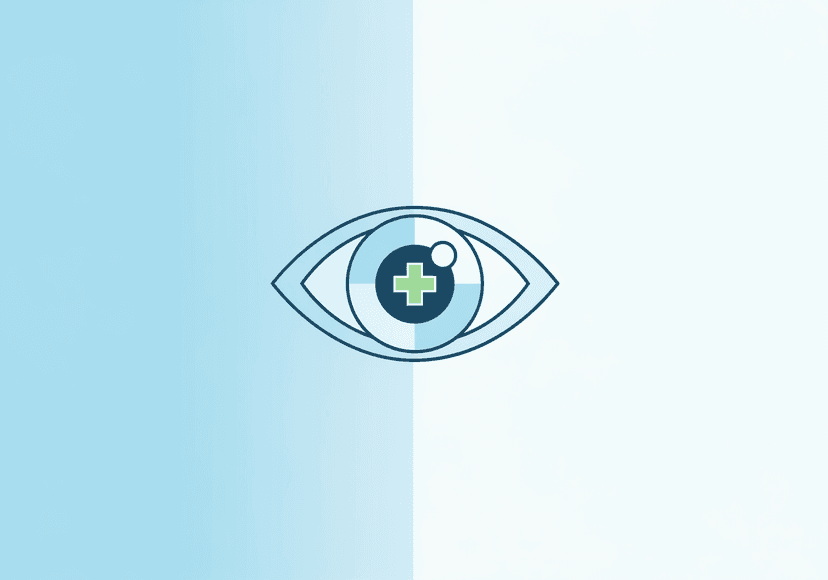
Stepwise Recovery Plan After IVF Treatment
29 Oct, 2025
 Healthtrip
Healthtrip- Understanding the Need for a Stepwise Recovery Plan After IVF
- Immediate Post-Transfer Care: What to Expect in the First Few Days
- Diet and Nutrition: Fueling Your Body for Success
- Managing Emotional Wellbeing During the Two-Week Wait
- Gentle Exercise and Lifestyle Adjustments to Support Implantation
- Specific Medical Considerations at Vejthani Hospital & Bangkok Hospital
- Next Steps After Confirmation: Continuing a Healthy Pregnancy
- Conclusion
Physical Recovery: Rebuilding Your Strength
Rest and Gentle Activity
After undergoing IVF, your body needs time to heal and recover from the procedures involved; think of it as giving your internal systems a well-deserved vacation. During the initial few days following the embryo transfer, prioritize rest. Avoid strenuous activities, heavy lifting, and intense workouts. Light activities like gentle walking can improve blood circulation and boost your mood. Consider short, leisurely strolls in a park or around your neighborhood. It’s also an excellent time to indulge in relaxing activities like reading a book, watching a feel-good movie, or listening to calming music. Remember, this ??????? period is not about being idle; it’s about actively supporting your body’s healing processes. So, put your feet up, unwind, and let your body focus on what it needs to do. If you're under the care of professionals at hospitals like Memorial Sisli Hospital, Istanbul, follow their specific post-operative guidelines meticulously for an optimized recovery experience.
Most popular procedures in India
Nutrition and Hydration
Nourishing your body with the right nutrients is crucial for recovery after IVF. Focus on a balanced diet rich in fruits, vegetables, lean proteins, and whole grains. These foods provide the essential vitamins and minerals needed for tissue repair and overall well-being. Hydration is equally important, so aim to drink plenty of water throughout the day. Proper hydration helps maintain optimal bodily functions and assists in flushing out any residual medications. Try to steer clear of processed foods, sugary drinks, and excessive caffeine, as these can hinder the recovery process. Instead, opt for wholesome, home-cooked meals that are easy to digest and packed with nutrients. Consider consulting a nutritionist at facilities like Vejthani Hospital in Bangkok for a personalized meal plan tailored to your specific needs and recovery stage. By prioritizing nutrition and hydration, you’ll provide your body with the building blocks it needs to heal and regain its strength.
Managing Discomfort and Medication
It’s not uncommon to experience some discomfort after IVF, such as bloating, cramping, or breast tenderness. Over-the-counter pain relievers, as recommended by your healthcare provider, can help manage these symptoms. Additionally, continue taking any prescribed medications as directed by your fertility specialist. These medications play a vital role in supporting the early stages of pregnancy if the IVF cycle was successful, or in regulating your hormonal balance as your body returns to its normal state. If you experience severe pain, heavy bleeding, or any other concerning symptoms, don’t hesitate to contact your medical team immediately. Hospitals like Saudi German Hospital Cairo, Egypt, often have dedicated helplines and emergency services to address any post-treatment concerns promptly. Remember, being proactive about managing discomfort and adhering to your medication schedule is crucial for a smooth and comfortable recovery. Your healthcare team is there to support you every step of the way, so don’t hesitate to reach out for guidance and assistance.
Wellness Treatments
Give yourself the time to relax
Lowest Prices Guaranteed!

Lowest Prices Guaranteed!
Emotional Recovery: Nurturing Your Mind
Acknowledge and Process Your Emotions
The emotional rollercoaster of IVF can be intense, regardless of the outcome. Take time to acknowledge and process your feelings, whether they are joy, disappointment, sadness, or anxiety. Suppressing your emotions can be detrimental to your mental well-being, so allow yourself to feel whatever arises without judgment. Journaling can be a helpful way to express your thoughts and emotions in a safe and private space. Writing down your experiences can provide clarity and help you gain a better understanding of your emotional landscape. Remember, it's okay to not be okay, and seeking support is a sign of strength, not weakness. At Healthtrip, we understand the emotional toll IVF can take. We can help connect you with mental health professionals at facilities like NPISTANBUL Brain Hospital who specialize in fertility-related counseling, offering a supportive and understanding environment for you to process your emotions and develop coping strategies. Give yourself permission to feel and heal at your own pace, knowing that you are not alone in this journey.
Seek Support and Connection
Surrounding yourself with a strong support network is essential during the emotional recovery phase. Talk to your partner, family members, friends, or a therapist about your experiences and feelings. Sharing your journey with others can provide comfort, validation, and a sense of connection. Consider joining a support group for individuals undergoing fertility treatment. Connecting with others who understand what you're going through can be incredibly empowering. These groups offer a safe space to share experiences, exchange advice, and find solace in knowing that you're not alone. Healthtrip can help you find reputable support groups and counseling services near facilities like Fortis Hospital, Noida. Additionally, engage in activities that bring you joy and relaxation, such as spending time in nature, practicing mindfulness or meditation, or pursuing a hobby you enjoy. Nurturing your emotional well-being is just as important as physical recovery, so prioritize self-care and connection during this time. Your emotional health contributes significantly to your overall healing process.
Set Realistic Expectations and Practice Self-Care
It's crucial to set realistic expectations for your recovery process. Healing takes time, and it’s natural to experience ups and downs along the way. Avoid comparing your journey to others, as everyone’s experience is unique. Focus on your own progress and celebrate small victories. Practice self-compassion and be kind to yourself. Treat yourself with the same care and understanding you would offer a friend going through a difficult time. Engage in activities that promote relaxation and stress reduction. Whether it's taking a warm bath, listening to soothing music, or practicing deep breathing exercises, find what works best for you and make it a regular part of your routine. Facilities like Taoufik Clinic, Tunisia, often provide holistic wellness programs that include stress management techniques and relaxation therapies. Remember, self-care is not selfish; it’s essential for your overall well-being. Prioritizing your mental and emotional health will help you navigate the challenges of recovery with greater resilience and grace. Allow yourself the time and space you need to heal, and remember that you deserve to feel supported and cared for throughout this journey.
Understanding the Need for a Stepwise Recovery Plan After IVF
Embarking on the journey of In Vitro Fertilization (IVF) is a significant decision, filled with hope, anticipation, and a healthy dose of anxiety. It’s a path often chosen after facing challenges in conceiving naturally, and the emotional investment is immense. Therefore, understanding that the period following embryo transfer is just as critical as the preceding steps is paramount. A well-structured, stepwise recovery plan isn't merely a suggestion; it’s a necessity for optimizing the chances of a successful pregnancy. Think of it as nurturing a delicate seed – it needs the right environment, consistent care, and protection from external stressors to flourish. This plan encompasses various aspects, from immediate post-transfer care to dietary adjustments, emotional well-being strategies, and gentle lifestyle modifications. Ignoring these elements can inadvertently jeopardize the entire IVF process, increasing stress and potentially diminishing the likelihood of a positive outcome. Healthtrip understands the importance of this crucial phase, offering resources and support to guide you through each step. Remember, you're not alone in this; we're here to help you navigate the journey with confidence and care, ensuring you have the best possible foundation for a successful pregnancy.
The need for a carefully curated recovery plan stems from the delicate nature of the implantation process. After the embryo is transferred into the uterus, it needs time to attach itself to the uterine lining and begin developing. This is a vulnerable period, and various factors can influence the outcome. High stress levels, poor nutrition, lack of rest, and strenuous activities can all potentially interfere with implantation. Moreover, each woman’s body responds differently to IVF, making a personalized approach essential. What works for one person might not be ideal for another. Therefore, a stepwise recovery plan, tailored to individual needs and medical history, is crucial. Healthtrip recognizes this individual variation and can connect you with fertility specialists at hospitals like Vejthani Hospital or Bangkok Hospital, where personalized care is a priority. These hospitals, known for their expertise in reproductive medicine, can provide comprehensive guidance and support, increasing your peace of mind during this sensitive time. Envision this plan as a roadmap, guiding you safely through potential pitfalls and leading you towards your ultimate destination: a healthy pregnancy.
Furthermore, a stepwise recovery plan provides a sense of control during a process that can often feel overwhelming. IVF involves numerous medical procedures, hormonal fluctuations, and emotional ups and downs, making it easy to feel lost and uncertain. A structured plan empowers you to take proactive steps to support your body and mind, reducing anxiety and fostering a sense of optimism. This plan also facilitates better communication with your healthcare team. By diligently following the prescribed guidelines and monitoring your symptoms, you can provide valuable information to your doctor, enabling them to make informed decisions and adjust the treatment plan as needed. Healthtrip acts as your partner in this journey, connecting you with experienced medical professionals who can create a customized recovery plan that aligns with your specific needs and circumstances. It's about creating an informed, empowered, and supported experience, allowing you to focus on what truly matters: nurturing the potential for new life. Think of Healthtrip as your dedicated travel companion, ensuring a smooth and comfortable journey to your desired destination – parenthood.
Immediate Post-Transfer Care: What to Expect in the First Few Days
The period immediately following embryo transfer is a crucial window that sets the stage for potential implantation. While it's tempting to overanalyze every sensation, understanding what to expect in those initial days can significantly reduce anxiety and promote a sense of calm. The first 24-48 hours are often recommended for prioritizing rest. This doesn't necessarily mean complete bed rest, but rather a focus on gentle activities and avoiding strenuous physical exertion. Imagine your body is working incredibly hard to support the embryo, so minimizing unnecessary stress is key. Light walking around the house is generally acceptable, as it promotes blood circulation, but avoid heavy lifting, intense workouts, or activities that could cause jarring movements. Think of it as giving your body a mini-vacation, allowing it to focus solely on nurturing the embryo and preparing for implantation. Healthtrip understands the importance of this delicate phase and encourages patients to prioritize relaxation and self-care, creating an optimal environment for success.
Beyond physical rest, paying attention to your body's signals is essential. You might experience mild cramping or bloating, which are often side effects of the hormonal medications used during IVF. However, any severe pain, heavy bleeding, or concerning symptoms should be promptly reported to your healthcare team. Many fertility clinics, including those partnered with Healthtrip at hospitals like Vejthani Hospital and Bangkok Hospital, provide specific guidelines on what to watch out for and how to contact them should any concerns arise. It's also crucial to maintain open communication with your medical team during this period. Don't hesitate to ask questions or seek clarification on any doubts you might have. Remember, there are no silly questions, and your healthcare providers are there to support you every step of the way. By staying informed and proactively addressing any potential issues, you can empower yourself to navigate this critical phase with confidence and peace of mind. Healthtrip facilitates this communication by connecting you with reputable fertility specialists and providing access to comprehensive medical information, ensuring you're always in the loop.
In addition to rest and symptom monitoring, maintaining a positive mindset is also crucial. The two-week wait can be emotionally challenging, filled with anticipation and uncertainty. Practicing relaxation techniques, such as deep breathing, meditation, or gentle yoga, can help manage stress and promote a sense of well-being. Engaging in activities that you enjoy, such as reading, listening to music, or spending time with loved ones, can also distract you from overthinking and help maintain a positive outlook. Remember, your emotional state can significantly impact your overall health and well-being, so prioritizing self-care is essential. Healthtrip recognizes the importance of emotional support during this journey and provides resources and connections to support groups, therapists, and online communities where you can connect with others who understand what you're going through. It's about creating a holistic approach to care that encompasses both your physical and emotional well-being, giving you the best possible chance of success. Consider Healthtrip your dedicated cheerleader, encouraging you to stay positive, stay strong, and believe in the possibility of a brighter future.
Diet and Nutrition: Fueling Your Body for Success
Nourishing your body with the right foods after an embryo transfer isn't just about general health; it's about creating the optimal environment for implantation and early pregnancy development. Think of your diet as the foundation upon which a healthy pregnancy is built. While there's no magic food that guarantees success, certain dietary choices can significantly enhance your chances. Focus on consuming a balanced diet rich in whole, unprocessed foods. This means loading up on fruits, vegetables, lean proteins, and whole grains, while minimizing processed foods, sugary drinks, and unhealthy fats. Imagine you're providing your body with the essential building blocks it needs to support the delicate processes of implantation and early fetal development. These nutrient-dense foods provide the vitamins, minerals, and antioxidants necessary for optimal cellular function and hormonal balance. Healthtrip emphasizes the importance of nutrition in fertility and can connect you with registered dietitians who specialize in fertility nutrition to create a personalized meal plan that meets your specific needs.
Specific nutrients play particularly important roles in supporting implantation and early pregnancy. Folate, for example, is crucial for preventing neural tube defects and promoting healthy cell division. You can find folate in leafy green vegetables, beans, and fortified grains. Omega-3 fatty acids, found in fatty fish, flaxseeds, and walnuts, are essential for brain development and reducing inflammation. Iron is also vital for supporting red blood cell production and preventing anemia, which can be particularly important during pregnancy. Include iron-rich foods like lean meats, spinach, and lentils in your diet. It's also essential to stay well-hydrated by drinking plenty of water throughout the day. Water helps transport nutrients, regulate body temperature, and prevent constipation, which can be a common side effect of IVF medications. Furthermore, consider limiting or avoiding certain foods that may interfere with implantation or early pregnancy. These include excessive caffeine, alcohol, and artificial sweeteners. Hospitals like Vejthani Hospital and Bangkok Hospital, often recommend specific dietary guidelines to their IVF patients, and Healthtrip can facilitate access to this information.
Beyond specific nutrients, it's also important to focus on food safety. Avoid consuming raw or undercooked meats, fish, and eggs, as they may contain harmful bacteria that could compromise your health. Wash fruits and vegetables thoroughly to remove any pesticides or contaminants. Be mindful of potential food allergies and avoid any foods that you know you are sensitive to. Consider incorporating fertility-boosting foods into your diet, such as avocados, which are rich in healthy fats and antioxidants, and pineapple, which contains bromelain, an enzyme that may help with implantation. Remember, a healthy diet is not about deprivation; it's about nourishing your body with wholesome, delicious foods that support your overall well-being and increase your chances of a successful pregnancy. Healthtrip empowers you to make informed dietary choices by providing access to expert nutritional guidance and connecting you with resources that can help you create a personalized meal plan that fits your lifestyle and preferences. Think of food as medicine, fueling your body with the nutrients it needs to thrive and supporting the miracle of life within you. It's about creating a nurturing environment, both inside and out, for your future baby to flourish.
Also Read:
Managing Emotional Wellbeing During the Two-Week Wait
The two-week wait following an IVF embryo transfer is often described as an emotional rollercoaster. It's a period filled with hope, anxiety, and uncertainty. The surge of hormones from fertility medications can amplify these feelings, making it crucial to prioritize your mental and emotional health. Acknowledge that it's normal to experience a wide range of emotions – joy, fear, impatience, and even grief if previous attempts have been unsuccessful. The key is to develop coping mechanisms that can help you navigate these challenging weeks with as much calm and resilience as possible. Remember, you're not alone in this journey, and many resources are available to support you.
One effective strategy is to practice mindfulness and relaxation techniques. Deep breathing exercises, meditation, and gentle yoga can help calm your nervous system and reduce stress hormones. Even a few minutes each day can make a significant difference in your overall sense of well-being. Another vital aspect is to maintain a support system. Lean on your partner, friends, family members, or a therapist who understands the emotional complexities of IVF. Sharing your feelings and concerns can alleviate the pressure of carrying everything alone. Consider joining a support group for individuals undergoing fertility treatment. Connecting with others who are experiencing similar challenges can provide invaluable comfort and validation. Remember to be kind to yourself during this time. Avoid placing unrealistic expectations on yourself, and allow yourself to feel whatever emotions arise without judgment. Distraction can also be a helpful tool. Engage in activities you enjoy, such as reading, watching movies, spending time in nature, or pursuing a hobby. These activities can provide a welcome respite from the constant focus on the outcome of the IVF cycle.
It's also crucial to manage your expectations and avoid obsessively analyzing every physical sensation. Many women experience mild cramping, spotting, or fatigue during the two-week wait, which can be attributed to the medications or the implantation process itself. These symptoms don't necessarily indicate pregnancy or a lack thereof. Try to resist the urge to take early pregnancy tests, as they can often be inaccurate and lead to unnecessary stress. Instead, focus on taking care of yourself and trusting the process. Healthtrip understands the emotional toll of fertility treatments and can provide assistance in connecting you with mental health professionals experienced in supporting individuals and couples through this process. Remember, your emotional well-being is an integral part of the journey to parenthood. By prioritizing your mental health, you can navigate the two-week wait with greater ease and resilience.
Also Read:
Gentle Exercise and Lifestyle Adjustments to Support Implantation
Maintaining a healthy lifestyle is crucial throughout the IVF process, particularly during the two-week wait. While strenuous activities are generally discouraged, gentle exercise and certain lifestyle adjustments can actually support implantation and improve your overall well-being. The key is to find a balance between staying active and avoiding anything that could potentially disrupt the delicate process of early pregnancy. Remember, your body is undergoing significant hormonal changes, so it's important to listen to its signals and adjust your activities accordingly. Avoid pushing yourself too hard, and prioritize rest and relaxation whenever possible.
Light activities like walking, swimming, and prenatal yoga are excellent options for maintaining physical fitness without putting undue stress on your body. Walking, even for just 30 minutes a day, can improve circulation, reduce stress, and boost your mood. Swimming is a low-impact exercise that can help alleviate aches and pains while providing a gentle cardiovascular workout. Prenatal yoga can enhance flexibility, strengthen your core, and promote relaxation through mindful breathing techniques. Before starting any exercise program, it's essential to consult with your doctor or fertility specialist to ensure it's safe and appropriate for your specific situation. They can provide personalized recommendations based on your medical history and the specifics of your IVF cycle. In addition to exercise, certain lifestyle adjustments can also play a role in supporting implantation. Avoid smoking, alcohol, and excessive caffeine consumption, as these substances can negatively impact fertility and early pregnancy. Focus on getting adequate sleep, as sleep deprivation can increase stress hormones and compromise your immune system. Aim for at least seven to eight hours of quality sleep each night. Creating a relaxing bedtime routine, such as taking a warm bath or reading a book, can help improve your sleep quality.
Moreover, consider making small changes to your daily routine to minimize exposure to potential toxins. Opt for natural cleaning products, avoid using harsh chemicals, and limit your exposure to environmental pollutants. While it's impossible to eliminate all risks, taking these precautions can help create a healthier environment for your developing embryo. Healthtrip recognizes the importance of holistic wellness during fertility treatment and can assist you in finding qualified fitness professionals and lifestyle coaches who specialize in supporting individuals undergoing IVF. Remember, every little bit counts when it comes to creating a nurturing environment for implantation and a healthy pregnancy. By incorporating gentle exercise and mindful lifestyle adjustments into your routine, you can empower yourself to take an active role in your fertility journey.
Also Read:
Specific Medical Considerations at Vejthani Hospital & Bangkok Hospital
When undergoing IVF abroad, understanding the specific protocols and medical considerations of your chosen clinic is paramount. For patients considering Vejthani Hospital or Bangkok Hospital in Thailand, knowing the nuances of their approach to IVF can provide added reassurance and preparation. Both hospitals are renowned for their advanced reproductive technologies, experienced medical teams, and patient-centered care. However, understanding their individual strengths and approaches can help you make informed decisions about your treatment plan. Vejthani Hospital, for instance, boasts a strong focus on personalized fertility treatments, tailoring protocols to meet the unique needs of each patient. They often incorporate advanced diagnostic testing to identify underlying issues that may be affecting fertility, allowing for more targeted interventions. They may also emphasize a holistic approach, integrating complementary therapies like acupuncture and traditional Thai medicine to support overall well-being and improve IVF outcomes.
Bangkok Hospital, on the other hand, is known for its comprehensive range of fertility services and cutting-edge technologies. They often utilize advanced techniques like preimplantation genetic testing (PGT) to screen embryos for genetic abnormalities before transfer, increasing the chances of a successful pregnancy and reducing the risk of miscarriage. They may also offer innovative treatments like mitochondrial transfer to improve the quality of eggs and embryos, particularly for women with advanced maternal age or recurrent IVF failures. Both Vejthani Hospital and Bangkok Hospital adhere to international standards of care and employ highly skilled embryologists, nurses, and support staff. They prioritize patient safety and comfort, providing a supportive and compassionate environment throughout the IVF journey. However, it's crucial to discuss your individual medical history and treatment goals with your chosen clinic to ensure a personalized and effective approach. This may involve reviewing your previous medical records, undergoing additional diagnostic testing, and collaborating with your fertility specialist to develop a customized treatment plan.
Healthtrip works closely with Vejthani Hospital (https://www.healthtrip.com/hospital/vejthani-hospital) and Bangkok Hospital (https://www.healthtrip.com/hospital/bangkok-hospital) to facilitate seamless access to their services and provide comprehensive support throughout your medical journey. We can assist with travel arrangements, accommodation, language translation, and coordination of medical appointments. Our goal is to ensure that you feel comfortable, informed, and supported every step of the way, allowing you to focus on your health and well-being. It's recommended to request a detailed consultation with the fertility specialists at either Vejthani Hospital or Bangkok Hospital through Healthtrip to discuss your specific case and understand the recommended treatment plan, associated costs, and potential outcomes. This will empower you to make informed decisions and embark on your IVF journey with confidence.
Next Steps After Confirmation: Continuing a Healthy Pregnancy
Receiving a positive pregnancy test after IVF is a momentous occasion, marking the beginning of a new chapter in your journey to parenthood. However, it's important to remember that this is just the first step, and ongoing care is crucial to ensure a healthy and successful pregnancy. The weeks and months following confirmation require careful monitoring, lifestyle adjustments, and a strong partnership with your healthcare team. The initial focus will be on confirming the pregnancy with a blood test and ultrasound. Your fertility specialist will likely schedule these appointments to monitor hormone levels and visualize the gestational sac and fetal heartbeat. These early assessments help to ensure that the pregnancy is progressing normally and to rule out any potential complications like ectopic pregnancy or miscarriage.
Once the pregnancy is confirmed and deemed viable, your care will typically transition from your fertility specialist to an obstetrician (OB-GYN). Your OB-GYN will provide comprehensive prenatal care throughout the remainder of your pregnancy. This will involve regular checkups, ultrasounds, and blood tests to monitor your health and the baby's development. They will also discuss important topics like nutrition, exercise, and potential risks or complications. Continuing to prioritize a healthy lifestyle is essential during pregnancy. Maintain a balanced diet rich in fruits, vegetables, lean protein, and whole grains. Take prenatal vitamins as prescribed by your doctor to ensure you're getting adequate amounts of essential nutrients like folic acid, iron, and calcium. Engage in regular, gentle exercise to stay active and manage stress. Walking, swimming, and prenatal yoga are excellent options. Avoid smoking, alcohol, and excessive caffeine consumption, as these substances can harm the developing baby. Stay hydrated by drinking plenty of water throughout the day.
Be aware of potential warning signs and seek medical attention promptly if you experience any concerning symptoms, such as severe abdominal pain, vaginal bleeding, or decreased fetal movement. Communication is key throughout your pregnancy. Don't hesitate to ask your healthcare providers any questions you have and to express any concerns you may be experiencing. Open communication ensures that you receive the best possible care and that any potential issues are addressed promptly. Healthtrip remains committed to supporting you throughout your pregnancy and beyond. We can assist you in finding qualified OB-GYNs and other healthcare professionals in your area. We can also provide resources and information to help you navigate the various stages of pregnancy and prepare for parenthood. Remember, a healthy pregnancy is a collaborative effort between you, your healthcare team, and your support system. By staying informed, prioritizing your health, and maintaining open communication, you can increase your chances of a smooth and fulfilling pregnancy journey.
Also Read:
Conclusion
The journey through IVF is undoubtedly a complex and emotionally charged experience. From the initial consultations and hormonal injections to the egg retrieval, embryo transfer, and the agonizing two-week wait, each step requires resilience, patience, and a strong support system. However, by understanding the process, prioritizing your physical and emotional well-being, and seeking guidance from experienced healthcare professionals, you can significantly increase your chances of success. The stepwise recovery plan outlined in this blog provides a framework for navigating the post-transfer period with greater confidence and peace of mind. Remember that every individual's journey is unique, and there is no one-size-fits-all approach to IVF. What works for one person may not work for another, so it's essential to personalize your treatment plan and listen to your body's signals. Don't be afraid to ask questions, seek support, and advocate for your own needs. The team at Healthtrip is dedicated to empowering you with information, connecting you with leading fertility clinics, and providing comprehensive support throughout your IVF journey. We understand the challenges you face and are committed to helping you achieve your dream of parenthood.
Whether you're considering IVF for the first time or have experienced previous unsuccessful attempts, remember that hope remains. Advancements in reproductive technology are constantly evolving, offering new and innovative solutions for overcoming infertility. By staying informed about the latest developments and working closely with your healthcare team, you can explore all available options and increase your chances of a positive outcome. Ultimately, the goal of IVF is not just to achieve pregnancy but to create a healthy and fulfilling family. As you embark on this journey, remember to celebrate the small victories along the way, cherish the support of your loved ones, and focus on creating a nurturing environment for your future child. With perseverance, determination, and the right support, you can navigate the complexities of IVF and realize your dream of becoming a parent. Healthtrip is here to guide you every step of the way, providing personalized assistance and compassionate care to help you achieve your goals.
Related Blogs

Long-Term Follow-Up After Eye Surgery
Detailed insights into eye surgery – doctors, hospitals, technology, recovery,

Healthtrip’s Transparency in Eye Surgery Pricing and Packages
Detailed insights into eye surgery – doctors, hospitals, technology, recovery,

Frequently Asked Questions About Eye Surgery
Detailed insights into eye surgery – doctors, hospitals, technology, recovery,

Advanced Robotic Technology Used in Eye Surgery
Detailed insights into eye surgery – doctors, hospitals, technology, recovery,

How Healthtrip Supports Foreign Patients for Eye Surgery in India
Detailed insights into eye surgery – doctors, hospitals, technology, recovery,

Top Medical Packages for Eye Surgery Offered by Healthtrip
Detailed insights into eye surgery – doctors, hospitals, technology, recovery,










